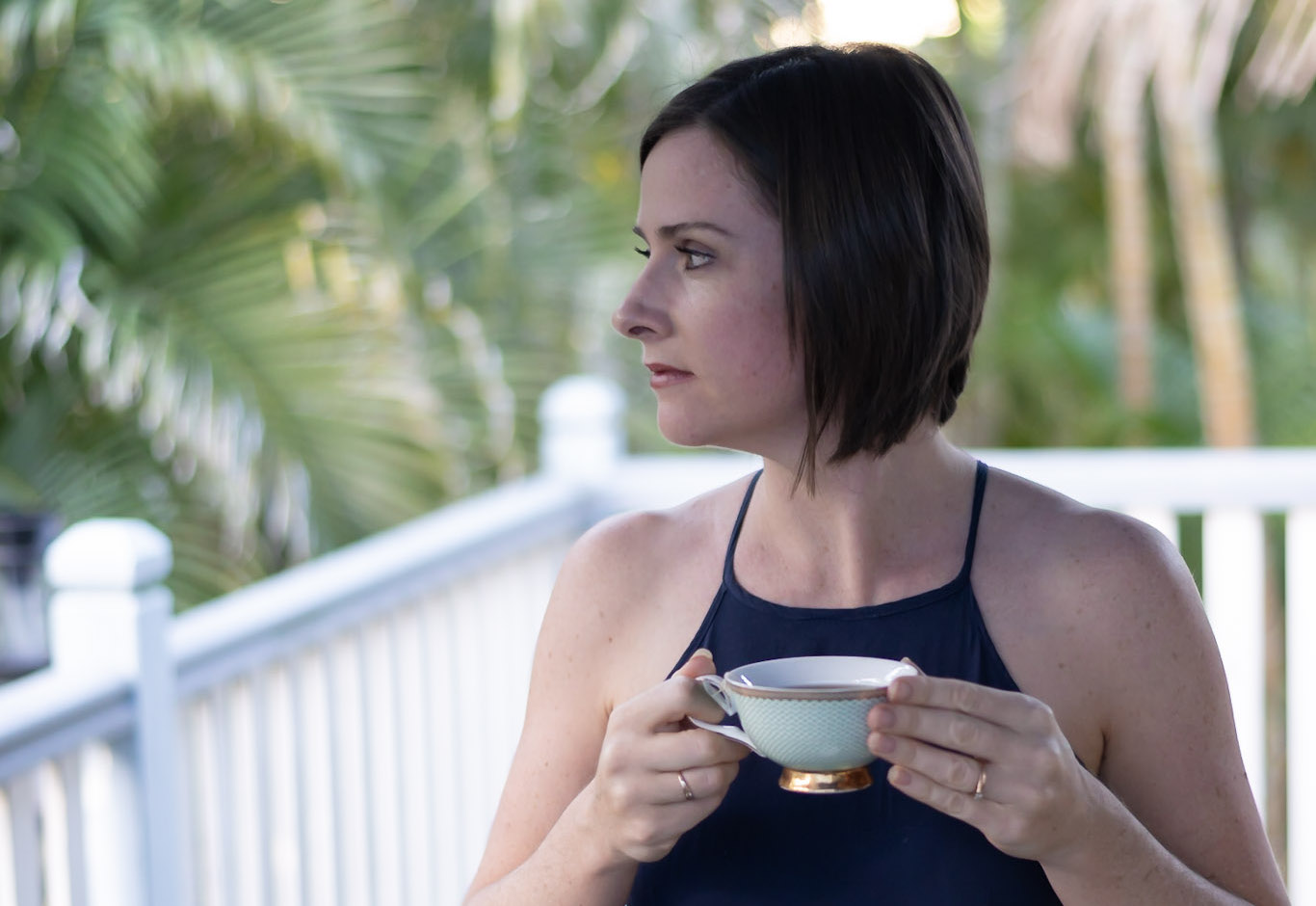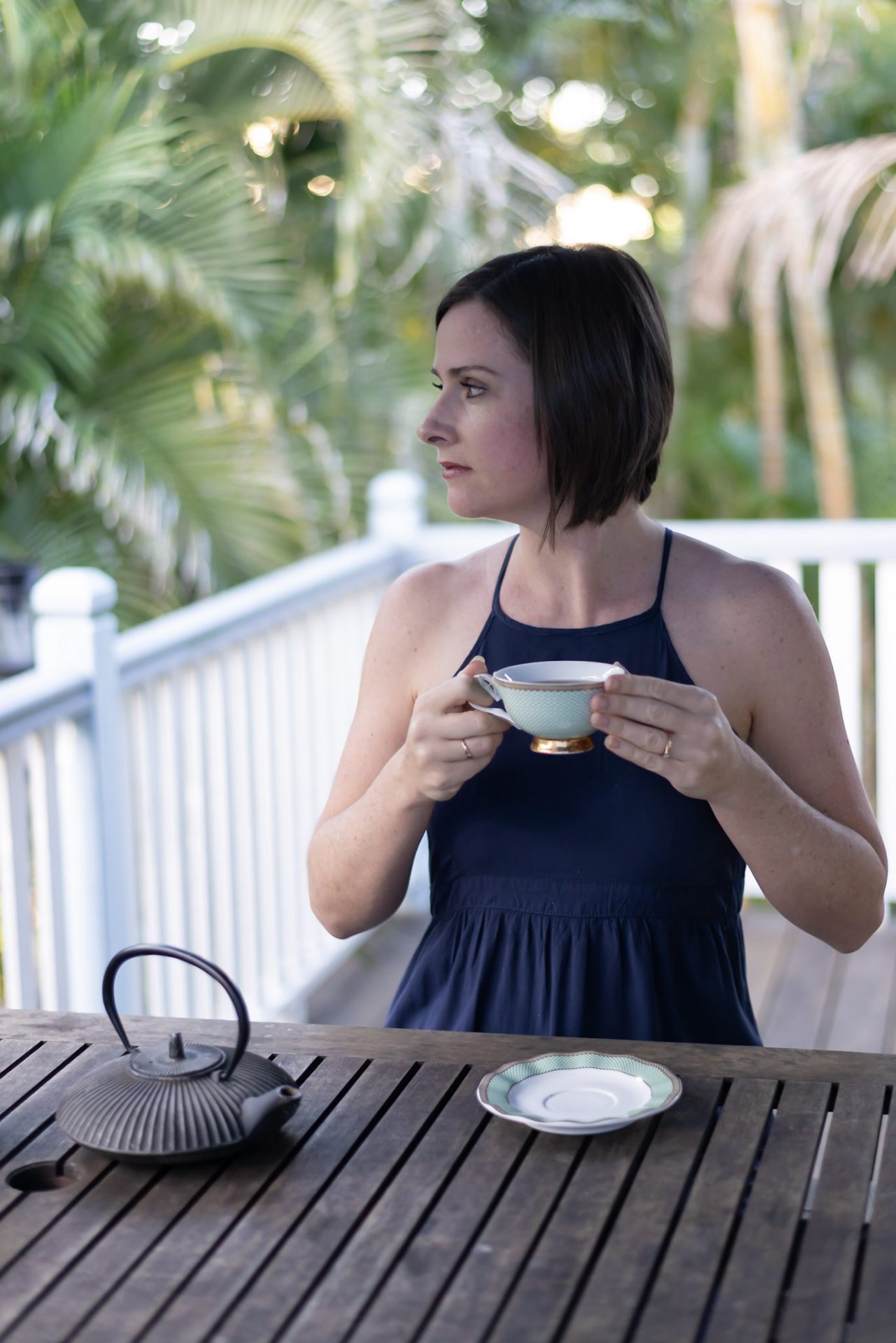
My Cup of Tea
After experiencing the powerful ceremony of tea for the first time on a visit to a wintry Poland in 2002, Rebecca Domorev found peace – and a winning business idea – in the humble cup of tea.
Tell us about the journey that inspired Tielka?
I fell in love with tea in the northern winter of 2002 when visiting a friend’s café in Kielce, Poland. I was handed the most lovingly put together, extensive tea menu, filled with thoughtful descriptions. I was captivated – I had never seen tea treated with such dignity and respect. I tried a tea – admittedly a sweet fruity concoction – but I was delighted and that got the ball rolling.
Six years after my first tea experience, I remember standing in my sister-in-law’s kitchen as she lamented over the poor, tasteless selection of stale organic teas available in Australia, and nothing fair trade. After a little research, I discovered that there were no organic, fair trade loose leaf tea companies in Australia. So Tielka grew organically from this and became the first in Australia to release a fully Certified Organic, Fairtrade tea collection.
Beautiful tea is, paradoxically, both incidental and central because it creates a space where the real magic happens.
Why are ethics and sustainability so important?
There’s so many important aspects to ethically and sustainably grown tea, including the impact on the land, the wildlife, the benefits of observing natural harvest cycles and on our health as consumers. Early on, I discovered that tea growers, who are the most vulnerable in the supply chain, were rarely given any protective wear against poisonous pesticides. In cases where they had protection, they were poorly educated on safe usage. The resulting health issues were significant and ongoing. Conventional tea was never going to be an option for us.

Why is tea so powerful for mental health and wellbeing?
Tea is an incredible force and there are two aspects of tea that make it so powerful. The first is simple – it’s what you find in your cup. Tea and herbals contain extraordinary nutrients that can lift your mood, support brain function and improve digestive health, all of which support mental health and wellbeing. There is a lovely amino acid called theanine, particularly potent in green and white tea, that naturally increases dopamine levels in the brain, which makes you feel happy!
The second is my favourite – the ceremony of tea and the life-giving me-time that is built around a cup of tea. Beautiful tea is, paradoxically, both incidental and central because it creates a space where the real magic happens. In this space, I begin to rest deeply, disconnect from the world and connect with my inner self, and even more so, with God.
Regardless of what circumstances we find ourselves in, there are still moments of joy to be found.
You’ve spoken about how, when your third son was born with Down Syndrome, your personal tea practices helped process those emotions. Can you tell us about that?
I don’t think I realised the full impact my tea-time had on my life until that experience. By the grace of God, I was anchored in peace during this season. It was still exhausting and difficult – we were uprooted from our home and relocated to Brisbane while our perfect newborn son had surgery and recovered in NICU. It took time to get our heads around his diagnosis, but when we created Tielka we came up with the phrase “indulge in life”. It was based on this idea that, regardless of what circumstances we find ourselves in, there are still moments of joy to be found. It has become a way of life for us.
A couple of weeks after Andrew was born, I remember walking through the parklands of South Bank one evening. I looked up and saw fairy lights in the distance behind a sculptured metallic archway, overgrown with vines, surrounding the walkway. The moment caught me completely off guard and I gasped. I was filled with wonderment and unexpectedly felt incredible joy. I have that same feeling when I start my day over a beautiful cup of tea; my heart is set up to find moments of joy even in the most difficult of circumstances.
Why is me-time and self-care so important?
When I give myself the time I need to rest, to enjoy my tea, to practice mindfulness, I am living my best self. I’m far from perfect, but the cogs of life seem to turn better. I can only imagine how much more smoothly society would grow if this was the norm.


